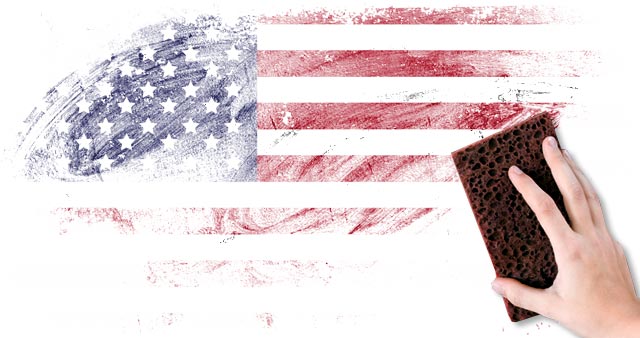Iran Accord, War and the Doomed Dollar
US President Barack Obama has given an extraordinary ultimatum to the Republican-controlled Congress, arguing that they must not block the nuclear accord with Iran. It’s either “deal or war,” he says.
In a televised nationwide address on August 5, Obama said: “Congressional rejection of this deal leaves any US administration that is absolutely committed to preventing Iran from getting a nuclear weapon with one option: another war in the Middle East. I say this not to be provocative. I am stating a fact.”
The American Congress is due to vote on whether to accept the Joint Comprehensive Plan of Action signed July 14 between Iran and the P5+1 group of world powers –the US, Britain, France, Germany, Russia and China. Republicans are openly vowing to reject the JCPOA, along with hawkish Democrats such as Senator Chuck Schumer. Opposition within the Congress may even be enough to override a presidential veto to push through the nuclear accord.
In his drastic prediction of war, one might assume that Obama is referring to Israel launching a preemptive military strike on Iran with the backing of US Republicans. Or that he is insinuating that Iran will walk from self-imposed restraints on its nuclear program to build a bomb, thus triggering a war.
But what could really be behind Obama’s dire warning of “deal or war” is another scenario — the collapse of the US dollar, and with that the implosion of the US economy.
That scenario was hinted at this week by US Secretary of State John Kerry. Speaking in New York on August 11, Kerry made the candid admission that failure to seal the nuclear deal could result in the US dollar losing its status as the top international reserve currency.
“If we turn around and nix the deal and then tell [US allies], ‘You’re going to have to obey our rules and sanctions anyway,’ that is a recipe, very quickly for the American dollar to cease to be the reserve currency of the world.”
In other words, what really concerns the Obama administration is that the sanctions regime it has crafted on Iran — and has compelled other nations to abide by over the past decade — will be finished. And Iran will be open for business with the European Union, as well as China and Russia.
It is significant that within days of signing the Geneva accord, Germany, France, Italy and other EU governments hastened to Tehran to begin lining up lucrative investment opportunities in Iran’s prodigious oil and gas industries. China and Russia are equally well-placed and more than willing to resume trading partnerships with Iran. Russia has signed major deals to expand Iran’s nuclear energy industry.
American writer Paul Craig Roberts said that the US-led sanctions on Iran and also against Russia have generated a lot of frustration and resentment among Washington’s European allies.
“US sanctions against Iran and Russia have cost businesses in other countries a lot of money,” Roberts told this author.
“Propaganda about the Iranian nuke threat and Russian threat is what caused other countries to cooperate with the sanctions. If a deal worked out over much time by the US, Russia, China, UK, France and Germany is blocked, other countries are likely to cease cooperating with US sanctions.”
Roberts added that if Washington were to scuttle the nuclear accord with Iran, and then demand a return to the erstwhile sanctions regime, the other international players will repudiate the American diktat.
“At that point, I think much of the world would have had enough of the US use of the international payments system to dictate to others, and they would cease transacting in dollars.”
The US dollar would henceforth lose its status as the key global reserve currency for the conduct of international trade and financial transactions.
Former World Bank analyst Peter Koenig says that if the nuclear accord unravels, Iran will be free to trade its oil and gas — worth trillions of dollars — in bilateral currency deals with the EU, Japan, India, South Korea, China and Russia, in much the same way that China and Russia and other members of the BRICS nations have already begun to do so.


